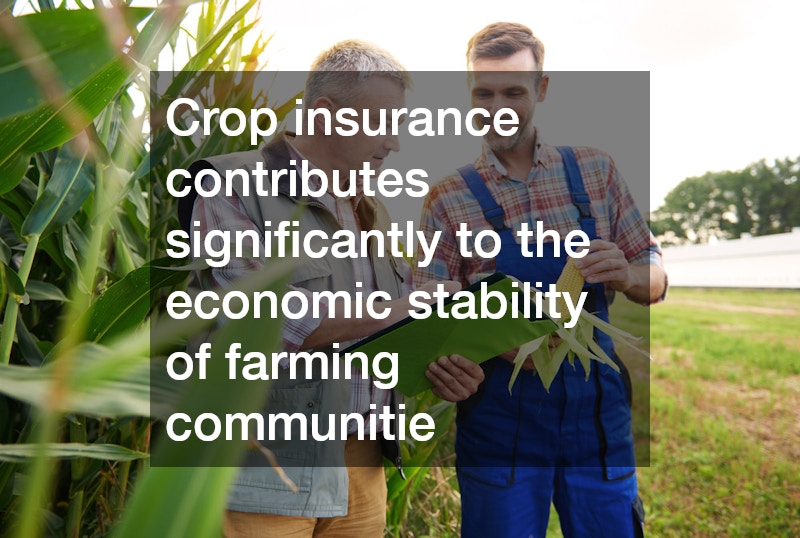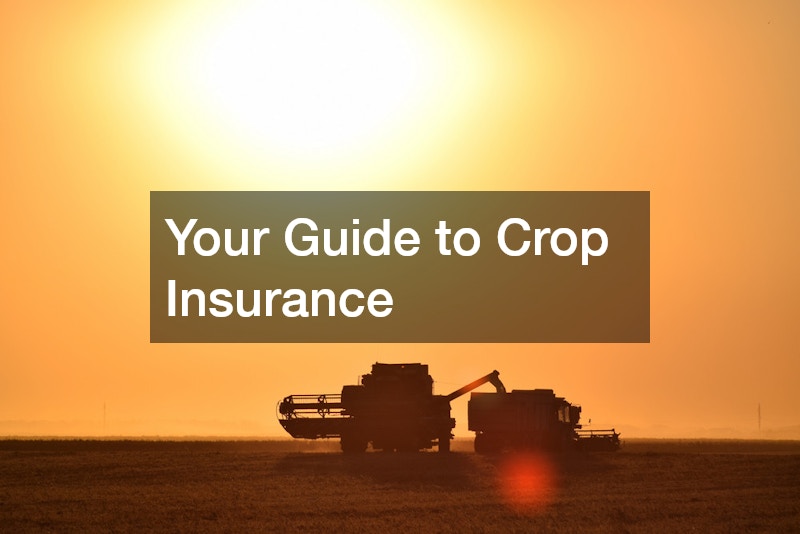
Learn about the importance and benefits of crop insurance for farmers and agricultural enterprises. This guide will help you understand the different types of crop insurance available and how they can provide financial protection against losses. Farmers across the United States, including Illinois, face unique challenges that require effective solutions like crop insurance.
What is Crop Insurance and How Does it Work?
Definition and Purpose of Crop Insurance
Crop insurance is a crucial risk management tool that provides financial coverage to farmers against crop failures due to a variety of factors such as natural disasters, pests, and disease. It is designed to safeguard agricultural investments and ensure continuity in farming operations. Crop insurance empowers farmers by mitigating potential financial pitfalls that can arise from unpredictable circumstances.
Types of Crop Insurance
Several types of crop insurance policies are available, catering to diverse agricultural needs. In Illinois, multi-peril crop insurance (MPCI) is popular; it covers a variety of risks such as drought, disease, and flooding in a single policy. Revenue-based insurance, another common type, is designed to protect a farmer’s income by compensating for price declines and yield failures.
Mechanics of Crop Insurance Policies
Crop insurance policies operate through detailed processes, involving premium calculations based on historical yield data and risk assessment. In Illinois, premium rates can be influenced by factors such as crop type, land location, and weather patterns. Claim processes require documentation of loss events, after which farmers can receive compensation based on their specific coverage terms.
Why is Crop Insurance Important for Illinois Farmers?
Risk Management and Loss Protection
Crop insurance serves as a vital risk mitigation strategy for Illinois farmers, shielding them from substantial financial losses. Adverse weather events, which can be particularly devastating to agriculture, are covered, allowing farmers to maintain their financial resilience. With crop insurance IL, farmers are encouraged to invest in innovative farming techniques without the fear of total financial ruin.
The Economic Impact on Agricultural Operations
Crop insurance contributes significantly to the economic stability of farming communities in Illinois by providing a safety net that reduces the uncertainties associated with agricultural production. It supports revenue continuity, thereby safeguarding jobs and the overall economic health of rural areas. By stabilizing farm income, crop insurance IL enables farmers to plan and execute long-term operational strategies confidently.
Adapting to Climate Change
The role of crop insurance is increasingly critical as climate change introduces more unpredictability into weather patterns, posing new challenges for Illinois farmers. By offering protection against these new and emerging risks, crop insurance IL supports farmers in adapting their practices and strategies. It incentivizes adopting climate-smart approaches, ensuring that farms remain viable and productive under changing environmental conditions.
Conclusion
Crop insurance is an essential tool for farmers in Illinois and beyond, offering protection and financial stability in the face of unforeseen challenges. This guide has provided insights into its functionality, benefits, and significance in the agriculture sector. As farmers continue to face evolving risks, having robust insurance coverage remains a foundational aspect of successful and sustainable agricultural practice.
“
.

